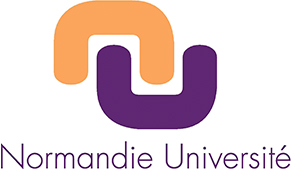Migration and Mutation. New Perspectives on the Sonnet in Translation
N° ISBN : 978-1-5013-8046-4
Editeur : Bloomsbury Publishing
Spanning four centuries from the Renaissance to today’s avant-garde, Migration and Mutation explores how the sonnet has evolved in and out of translation.
Contributors examine little-studied translation trajectories in the early modern period, such as the pivotal role of France between Italy and England or the first German sonnets and their Italian, French, Dutch and Scottish origins. Essays then shed new light on major European sonneteers In the 19th and 20th centuries, including Shakespeare, Keats, Yeats, Rilke and Pessoa, alongside lesser-known contemporaries and with novel approaches. And finally, contributors explore how translation and adaptation create metaphorical space in the 21st century.
Migration and Mutation also pays attention to the political or subversive dimension of the sonnet, with essays on women, gay or postcolonial reclaimings of the sonnet and recent experiments such as post-Soviet Sonnets on shirts by Genrikh Sagpir. It takes the sonnet out of the confines of enclosed national traditions bringing it into renewed contact with mostly European, but also other, cultures.
Carole Birkan-Berz (Anthology Editor), Oriane Monthéard (Anthology Editor) and Erin Cunningham (Anthology Editor)
TABLE OF CONTENTS
- Foreword
David Duff (Queen Mary University of London, UK) - Introduction
Carole Birkan-Berz (Université Sorbonne Nouvelle, France)
Part One: Revisiting early modern circulations
- Poetic furor in translation: Spenser’s and Sylvester’s sonnet collections
Padraic Lamb (University of Lyon, France) - The fashioning of English anti-Petrarchism: Spenser and Shakespeare remembering Du Bellay
Line Cottegnies (Université Sorbonne, France) - ‘Translated out of Ronsard’?: A misattributed translation of Petrarch’s RVF 48 by Sir John Borough
Guillaume Coatalen (CY Cergy Paris University, France) - Paving the way for Opitz: The first German sonnets at the crossroads of European circulation networks, 1556-1604
Elisabeth Rothmund (Université Sorbonne, France)
Part Two: Sonnet translation as a space for poetic imagination
- Keats’s sonnets and the translation process: Mediation, conversion and response
Oriane Monthéard (University of Rouen, France) - On translating Les Chimères by Gérard de Nerval
Peter Valente (Independent Scholar) - Reshaping Rilke: A comparative approach to the latest translations of Die Sonette an Orpheus into English
Frédéric Weinmann (Independent Scholar) - Fernando Pessoa’s sonnets – dislocations in form, persona and language
Carlos A. Pitella (Centre for Theatre Studies of the University of Lisbon, Portugal) - English sonnet spaces in Jacques Roubaud’s Churchill 40
Thea Petrou (Independent Scholar) - Lyrical gestures: The essence of the form and the spirit of the translated text in Don Paterson’s ‘versions’ of sonnets
Bastien Goursaud (UPEC Université Paris Est Créteil, France)
Part Three: Sonnet migrations across and outside Europe: Translating as a political act
- Translation and transnationalism: Reframing the contemporary Irish sonnet
Erin Cunningham (Independent Scholar) - Sonnet translation and imitation during the Second World War: Maintaining the idea of Europe?
Thomas Vuong (Independent Scholar) - Translating Genrikh Sapgir’s Sonnets on Shirts
Dmitri Manin (Independent Scholar) - The vulgar eloquence of Singaporean sonnets
Tse Hao Guang (Independent Scholar)
Part Four: Cross-media adaptations and beyond
- On the theatricality of the Canzoniere, from medieval to modern times
Jean-Luc Nardone (Toulouse Jean Jaurès University, France) - Raymond Queneau’s Cent mille milliards de poèmes: An attempt to exhaust the sonnet
Natalie Berkman (SAE Institute, Paris, France) - The Four Seasons in flux: Translating the sonnets from Vivaldi’s score in relation to performances by Nigel Kennedy
Paul Munden (University of Leeds, UK, and University of Canberra, Australia) and Anouska Zummo (Independent Scholar) - Debating sonnet translation in the Soviet and post-Soviet era: Rethinking and transforming the Russian sonnet
Alexander Markov (Russian State University for the Humanities, Moscow, Russia)
- Bibliography
- Index






